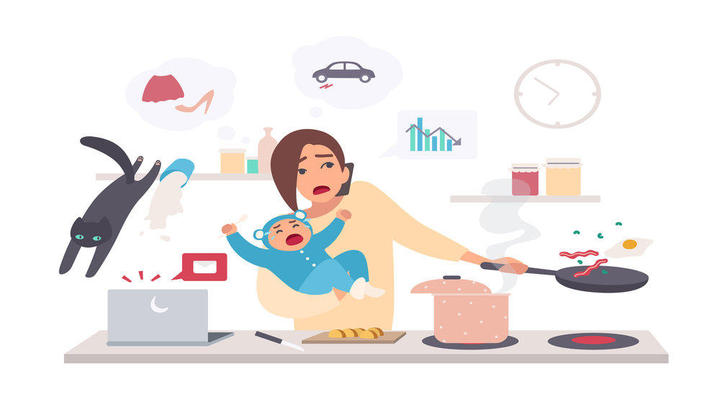I am hearing so many women in business talking about overload these days. Husbands/partners shutting themselves away with their laptops to do busywork whilst the women are burdened with home schooling, shopping, feeding everyone 24/7, keeping on top of housework AND trying to run their businesses or careers from home.
In a 2017 article for Harvard Business Review, Aviva Wittenberg-Cox wrote: “Professionally ambitious women really only have two options when it comes to their personal partners — a super-supportive partner or no partner at all. Anything in between ends up being a morale- and career-sapping morass.”
But what if you’ve already made your pick and, under the pressures of the pandemic, he has withdrawn support to focus on ‘his work’, whilst you struggle on largely alone with housework & children? What if you thought you’d signed up for a marriage of equals, only to find that the equality was conditional on your partner’s career not being disturbed by your success?
It seems that, while women often describe their husbands as ‘supportive’, that support doesn’t usually extend to those husbands altering their own work schedule or increasing their share of the domestic workload. They tell their wives “You can do whatever you want to do.” But then do very little to enable their wives to reach their full potential in their businesses or careers.
And the challenges of this pandemic have widened the cracks in the facade of equality. The pressures on working women have become intolerable. And what’s more, many employers are penalising women for being forced to work from home. There have been complaints about background noise during Zoom meetings, and some women have even been fired as a consequence.
A man seen to be juggling domestic responsibilities is a hero. A woman, apparently, is expected to work as though she has none.
Things have to change.
Women need to negotiate assertively with their life partners for a more equitable allocation of household tasks. We must learn to ask for what we need – without feeling we’re failing – and shift some of the emotional & mental burden onto the shoulders of the men we share our lives with. We need them to stop ‘helping’ and to start being fully responsible for their share. It’s their home too, their children, their mess, their laundry etc.
So, if you want your partner to step up, make time for a conversation. Be specific about what he needs to do. Be clear that he must accept full responsibility and not expect to be reminded or policed. Don’t volunteer to do the nagging. Remind him: Happy wife, happy life.

